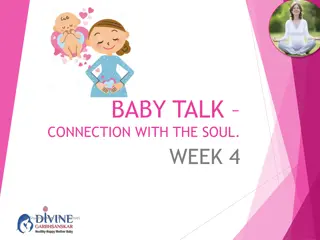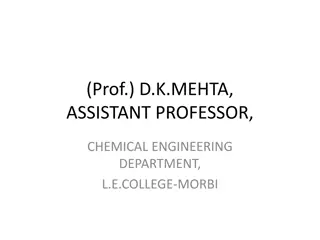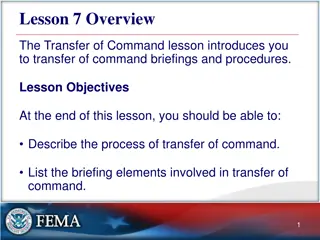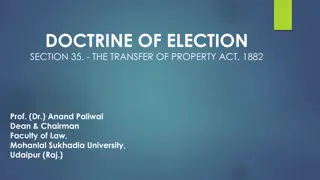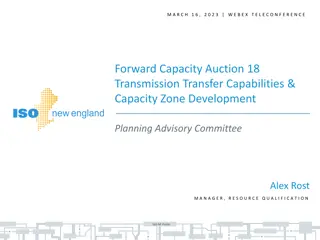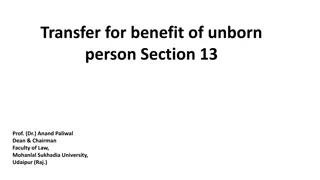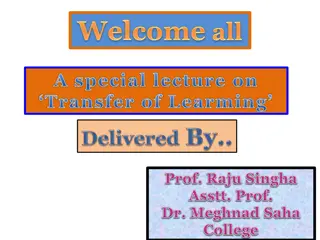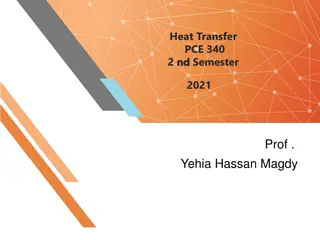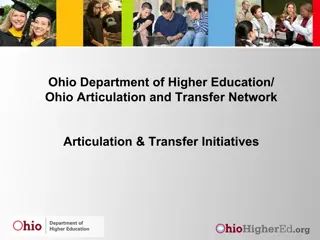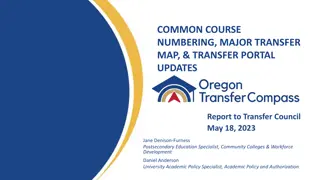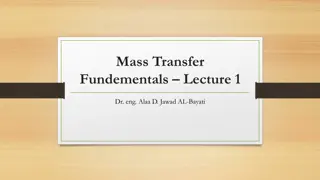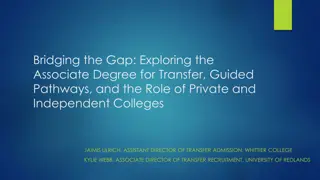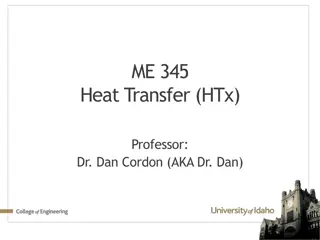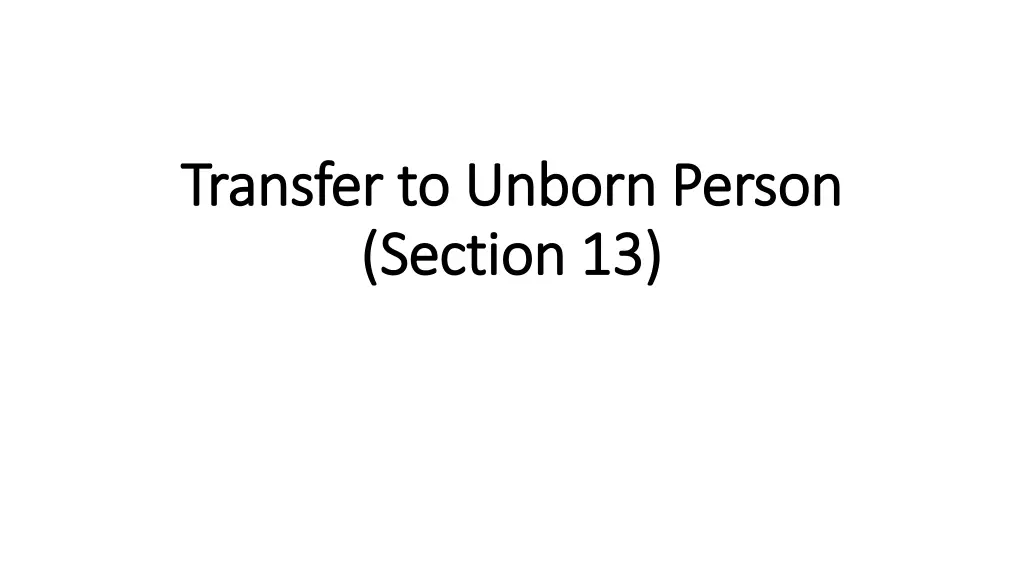
Transfer of Property Rules for Unborn Persons Under Hindu Law
Learn about the rules governing the transfer of property for unborn persons as per Hindu law. Discover the restrictions on direct transfers, creating prior interests, and transferring absolute interests. Explore case examples and principles guiding property transfers to benefit unborn individuals.
Download Presentation

Please find below an Image/Link to download the presentation.
The content on the website is provided AS IS for your information and personal use only. It may not be sold, licensed, or shared on other websites without obtaining consent from the author. If you encounter any issues during the download, it is possible that the publisher has removed the file from their server.
You are allowed to download the files provided on this website for personal or commercial use, subject to the condition that they are used lawfully. All files are the property of their respective owners.
The content on the website is provided AS IS for your information and personal use only. It may not be sold, licensed, or shared on other websites without obtaining consent from the author.
E N D
Presentation Transcript
Transfer to Unborn Transfer to Unborn P Person (Section 13) (Section 13) erson
A B C A Intended wife S Eldest Son (for life) G Second Son
Transfer of property for benefit of unborn person are permitted subject to some rules. Rules: 1. No Direct Transfer 2. By creating Prior Interest 3. Transfer whole of the interest
1. No Direct Transfer 1. No Direct Transfer No direct transfer of property to an unborn person Occaleston vs. Fullalove 1873----it was held that a child in the mother womb is considered to be minor. So no transfer directly in favor of him. Principle behind this is that property should not be in abeyance which derived from Hindu law.
Transferor Trustee Unborn Child A B C
2. Creating Prior Interest 2. Creating Prior Interest The intermediator must be a living person More than one person are permitted to be intermediator interest holder. The period is between the transfer and coming into existence of unborn person.
3. Transfer of absolute interest 3. Transfer of absolute interest Entire property that means the whole interest must be transferred in case of transfer of property in favor of unborn person. No life interest is permissible. It is permissible in only English law subject to a restriction called rule against double possibilities. Whitby vs. Mitchell .
CASE CASE Girish Dutt vs. Data Din .. A B Nephews Daughter B s male issue B s daughter s A s Nephew



